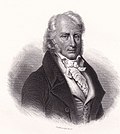Roger Federer Paul Accola (born 1967), skiing champion David Aebischer (born 1978), former National Hockey League goaltender Jeff Agoos (born 1968), Swiss-born American soccer defender Daniel Albrecht (born 1983), alpine skier Simon Ammann (born 1981), gold medallist in ski jumping at the 2002 Winter Olympics , ski jumping at the 2010 Winter Olympics Manuel Bachmann (born 1975), footballer Timea Bacsinszky (born 1989), tennis player Sven Bärtschi (born 1992), National Hockey League player for the Vancouver Canucks Madeleine Berthod (born 1931), 1956 gold medallist in downhill skiing Denise Biellmann (born 1962), world champion figure skater Sepp Blatter (born 1935), FIFA president Sébastien Buemi (born 1988), Formula One driver Clint Capela (born 1994), NBA player for the Houston Rockets Ursula Bruhin (born 1970), snowboarder Fabian Cancellara (born 1981), cyclist Claudio Castagnoli (born 1980), pro wrestler Stéphane Chapuisat (born 1969), footballer Dario Cologna (born 1986), cross-country skiing champion Didier Cuche (born 1974), alpine skier Didier Défago , (born 1977), alpine skier Johan Djourou (born 1987), footballer Oscar Egg (1890–1961), cyclist Roger Federer (born 1981), tennis champion: 20-time Grand Slam singles champion [ 2] Michela Figini (born 1966), alpine skiing champion Marcel Fischer (born 1978), fencing champion, gold medallist in Athens Olympics Alexander Frei (born 1979), footballer Tanja Frieden (born 1976), snowboarder Martin Gerber (born 1974), NHL goaltender for the Ottawa Senators Nico Hischier Arnold Gerschwiler (1914–2003), skater Hans Gerschwiler (1920), world champion figure skater Jack Gerschwiler (1898–2000), coach Stefan Grogg (born 1974), ice hockey player Franz Heinzer (born 1962), alpine skier Stéphane Henchoz (born 1974), footballer Erika Hess (born 1962), alpine skiing champion Martina Hingis (born 1980), tennis champion; five-time Grand Slam singles champion Nico Hischier (born 1999), NHL forward for the New Jersey Devils ; first Swiss player to be drafted #1 overall in the NHL Entry Draft Jakob Hlasek (born 1964), tennis player Ambrosi Hoffmann (born 1977), alpine skiing medalist Andy Hug (1964–2000), karate and kickboxing champion Benjamin Huggel (born 1977), professional footballer Patrick Hürlimann (born 1963), Olympic curling champion Roman Josi (born 1990), NHL defenseman for the Nashville Predators Natan Jurkovitz (born 1995), French-Swiss basketball player Stéphane Lambiel Bruno Kernen (born 1961), alpine skier, winner of the 1983 Kitzbühel downhill race Bruno Kernen (born 1972), alpine skier, bronze medalist and former world champion in downhill Hugo Koblet (1925–1964), cycling champion Franz Krienbühl (1929–2002), speed skater Ferdy Kübler (1919–2016), cycling champion Andreas Küttel (born 1979), ski jumper Stéphane Lambiel (born 1985), figure skater, Olympic silver medalist Peter Lüscher (born 1956), alpine skiing champion Daniela Meuli (born 1981), snowboarder Lise-Marie Morerod (born 1956), alpine skiing champion Nicolas Müller (born 1982), snowboarder Peter Müller (born 1957), alpine skiing champion Xeno Müller (born 1972), rower, Olympic gold medalist Marie-Theres Nadig (born 1954), alpine skiing champion Sonja Nef (born 1972), alpine skiing champion Maya Pedersen (born 1972), skeleton athlete Manuela Pesko (born 1978), snowboarder Alina Popa (born 1978), IFBB professional bodybuilder Walter Prager (1910–1984), alpine skiing champion Clay Regazzoni (1939–2006), racing driver Corinne Rey-Bellet (1972–2006), alpine skier Tony Rominger (born 1961), cyclist who won major tours four times in his career Marc Rosset (born 1970), tennis player, gold medallist in Barcelona Olympics Bernhard Russi (born 1948), alpine skiing champion Martina Schild (born 1981), downhill skiing champion Hedy Schlunegger (1923–2003), downhill Olympic champion of 1948 Olivier Schmutz (born 1971), judoka Vreni Schneider (born 1964), alpine skiing champion Patty Schnyder (born 1978), professional tennis player Thabo Sefolosha (born 1984), NBA player for the Oklahoma City Thunder Philippe Senderos (born 1985), footballer Xherdan Shaqiri (born 1991), professional footballer Jo Siffert (1936–1971), racing driver Mark Streit (born 1977), NHL defenceman for the Philadelphia Flyers Marc Surer (born 1951), racing driver Alain Sutter (born 1968), footballer Kubilay Türkyilmaz (born 1967), footballer Maria Walliser (born 1963), alpine skiing champion Stanislas Wawrinka (born 1985), professional tennis player Jean Wicki (1933–2003), gold medallist in bobsleigh Granit Xhaka (born 1992), footballer Hakan Yakin (born 1977), footballer Murat Yakin (born 1974), footballer Heidi Zurbriggen (born 1967), skier Matthias Zurbriggen (1856–1917), mountain guide and alpinist Pirmin Zurbriggen (born 1963), alpine skiing champion Silvan Zurbriggen (born 1981), skier Lara Gut-Behrami (born 1991), skier
























